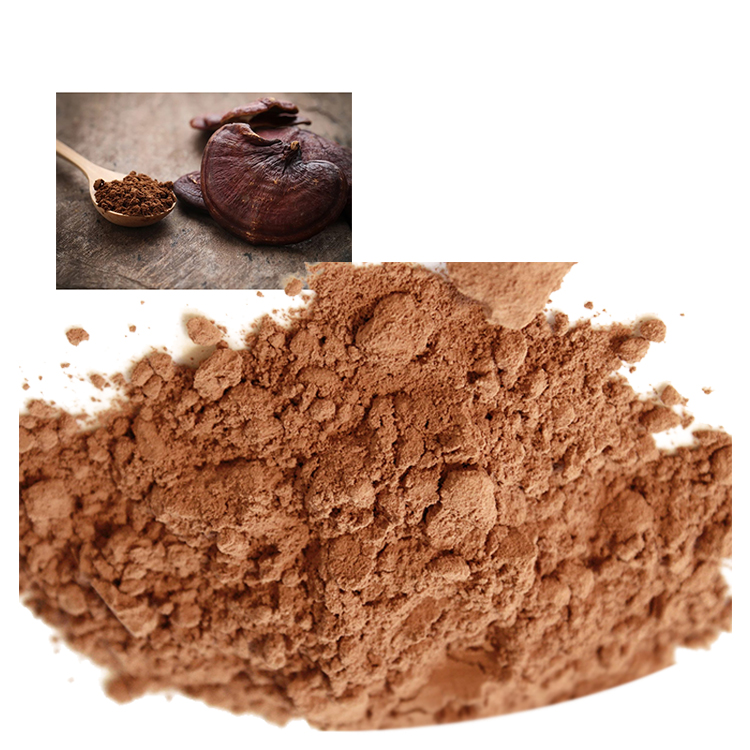The global market for medicinal mushrooms, especially Ganoderma extract, has expanded rapidly over the last decade. As supply chains become more complex and consumer expectations for quality rise, industry certifications have become essential for market entry and differentiation. For manufacturers, exporters, and B2B buyers of Ganoderma products, understanding the major certifications—GMP, organic, HALAL, and KOSHER—is crucial for regulatory compliance, quality assurance, and international competitiveness.
GMP Certification: The Foundation of Quality Assurance
Good Manufacturing Practice (GMP) certification is the cornerstone of quality control in the health supplement and food ingredient industries. GMP standards encompass every step of production—from raw material sourcing to final packaging—and ensure traceability, cleanliness, and product consistency. For Ganoderma extract producers, GMP compliance requires:
Detailed documentation of every production batch
Robust cleaning protocols and facility hygiene
Comprehensive staff training on contamination prevention
Stringent quality testing for identity, purity, and potency
Third-party audits are a critical aspect of GMP certification. Facilities are inspected for process controls, storage conditions, and risk management systems. Achieving GMP status is not a one-time event but an ongoing commitment to continuous improvement, which is often a non-negotiable prerequisite for major B2B buyers.
Organic Certification: Meeting the Clean-Label Demand
As consumers become more health-conscious, the demand for organically certified dietary supplements continues to rise. Organic certification for Ganoderma lucidum extract requires that mushrooms are cultivated without synthetic pesticides, herbicides, or genetically modified organisms (GMOs). The organic supply chain must be strictly segregated from conventional products, with rigorous record-keeping and periodic inspections.
Key steps in organic certification include:
Sourcing organic-certified spawn and growth media
Using only approved fertilizers and pest control measures
Maintaining audit trails for every stage of production and transport
Most organic certifications, such as USDA Organic or EU Organic, also require non-GMO verification and soil health management. For exporters, organic status not only opens premium market segments but also serves as an immediate signal of transparency and quality for B2B clients.
HALAL Certification: Accessing Muslim Markets
HALAL certification is a critical factor for suppliers targeting the large and growing Muslim consumer base worldwide. To certify a Lingzhi extract as HALAL, manufacturers must adhere to specific requirements in sourcing, processing, and handling. HALAL-compliant products must be free from prohibited ingredients (e.g., alcohol, porcine derivatives) and processed on dedicated equipment that meets Islamic law.
The certification process typically includes:
Ingredient and supplier vetting for compliance
Separate production lines or scheduled clean-downs to prevent cross-contamination
Ongoing supervision and periodic audits by HALAL certification bodies
HALAL certification not only supports access to key markets in Southeast Asia, the Middle East, and Africa, but also builds trust among B2B partners looking for reliable, culturally compliant suppliers.
KOSHER Certification: Quality and Trust in Diverse Markets
KOSHER certification, rooted in Jewish dietary law, has gained broad acceptance in global markets beyond its original religious context. For Reishi mushroom extract and other botanical ingredients, KOSHER certification is viewed as an extra layer of quality assurance and traceability.
The KOSHER process includes:
Ingredient review by a qualified rabbinic authority
Supervised production runs, sometimes with an on-site rabbi present
Documentation of all raw materials and cleaning procedures
KOSHER compliance reassures B2B buyers and end consumers about allergen management, ingredient purity, and ethical manufacturing. For many North American and European distributors, KOSHER status is a competitive advantage, even for non-religious consumer segments.
Integrated Certification Strategies for Ganoderma Suppliers
While each certification (GMP, organic, HALAL, KOSHER) serves a distinct market function, there is increasing demand for “all-in-one” compliance among global buyers. Forward-thinking Ganoderma extract suppliers invest in integrated management systems to streamline documentation, minimize redundant audits, and enable multi-market access.
Best Practices for Integrated Compliance:
Appoint a dedicated compliance team or partner with specialized consultants
Implement robust digital traceability systems
Coordinate third-party audits to cover overlapping requirements
Regularly train staff on updates to international certification standards
By harmonizing these certifications, suppliers can reduce administrative burdens, lower costs, and accelerate market entry. This integrated approach also facilitates greater transparency and responsiveness to evolving regulations.
Certification Trends: What B2B Buyers Expect
B2B buyers, especially in the supplement, food, and pharmaceutical sectors, increasingly require documentation of every major certification as part of their quality assurance programs. Due diligence now extends to digital verification, audit reports, and even blockchain-based supply chain transparency.
For Ganoderma extract suppliers, proactive certification not only meets buyer requirements but also strengthens brand positioning and enables premium pricing. Buyers often prioritize suppliers who provide complete certification portfolios, robust compliance records, and up-to-date product documentation.
Conclusion: Certification as a Strategic Asset
The path to global market leadership in the Ganoderma extract sector is paved with robust, visible, and verifiable certifications. GMP ensures operational integrity, organic meets consumer demand for clean label, HALAL opens Muslim-majority markets, and KOSHER expands reach to both religious and quality-focused buyers.
For exporters and manufacturers, investing in these certifications is not simply about ticking boxes—it is a strategic move that builds lasting trust, reduces regulatory risks, and creates opportunities for brand differentiation in a highly competitive field. As certification standards continue to evolve, staying ahead of compliance requirements will define the most successful suppliers in the rapidly growing world of medicinal mushroom ingredients.
Read More:
Real Consumer Feedback on Ganoderma Extract: Honest Reviews & Global Insights
Thirty Days on Ganoderma Extract: What Changed in My Body?
Precautions and Contraindications When Taking Ganoderma Extracts: A Comprehensive Guide
Hangzhou Molai Biotech Co., Ltd has supply capacity 1200+ tons per year for mushroom powders and extracts, including the mushroom mycelium from modern technology of Deeply Liquid Fermentation and fruiting bodies from the grown real mushrooms to meet the different markets.
Hangzhou Molai Biotech Co., Ltd supplies the products both in Powders and Extracts for commercial using worldwidely, such as Cordyceps Sinensis, Cordyceps Militaris, Maitake Mushroom, Lion’s Mane Mushroom, Turkey Tail Mushroom, Reishi Mushroom, Chaga Mushroom etc.
We offer OEM and ODM services, could extract the products according to your special requirements, process the powders/extracts into Capsules, Tablets, Small Bags, Mushroom Bars, Mushroom Coffee etc.
Organic Lion's Mane Mushroom Extract
Organic Reishi Mushroom Extract
Organic Cordyceps Militaris Extract
Organic Turkey Tail Mushroom Extract
Organic Chaga Mushroom Extract
Organic Shiitake Mushroom Extract
Organic Maitake Mushroom Extract
Organic Tremella Mushroom Extract






